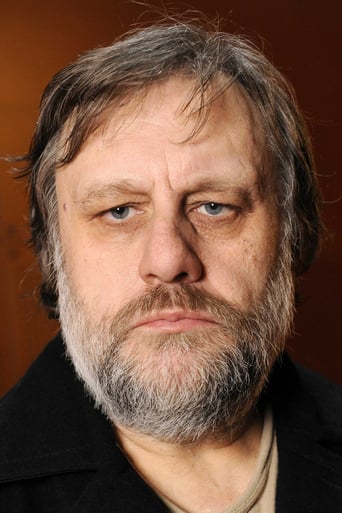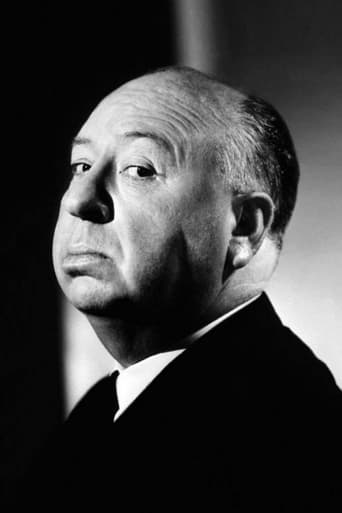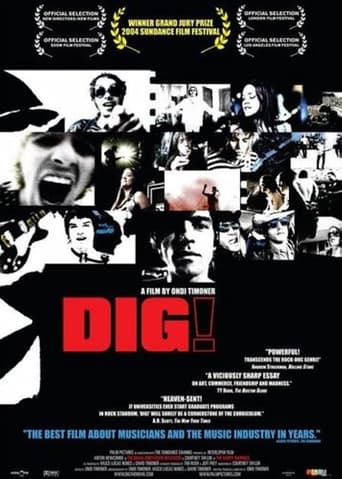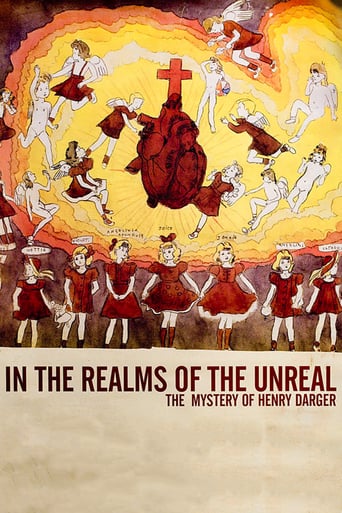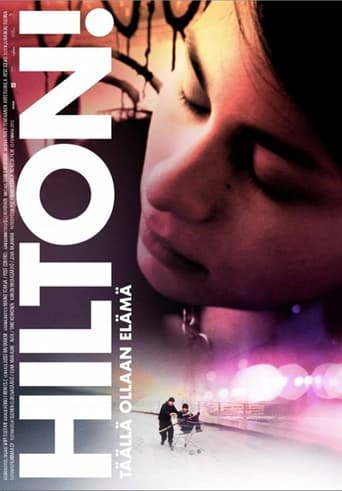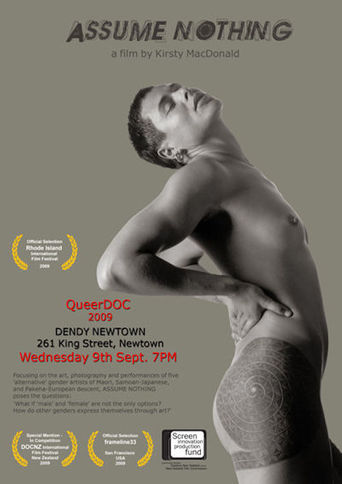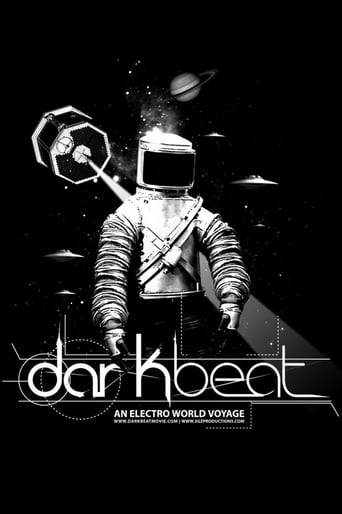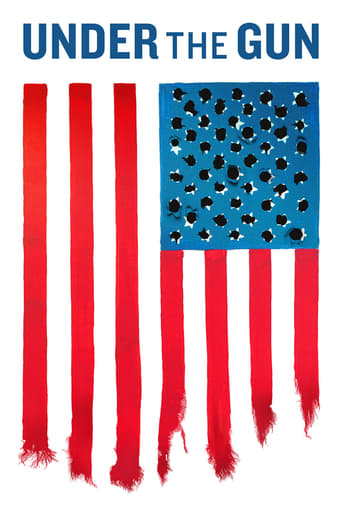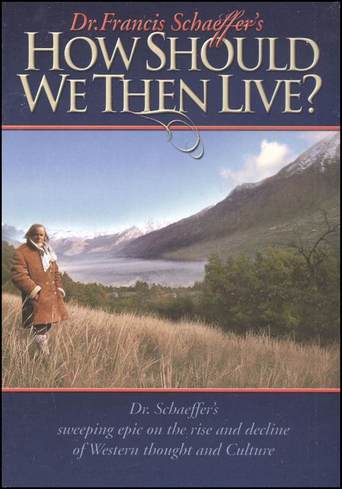
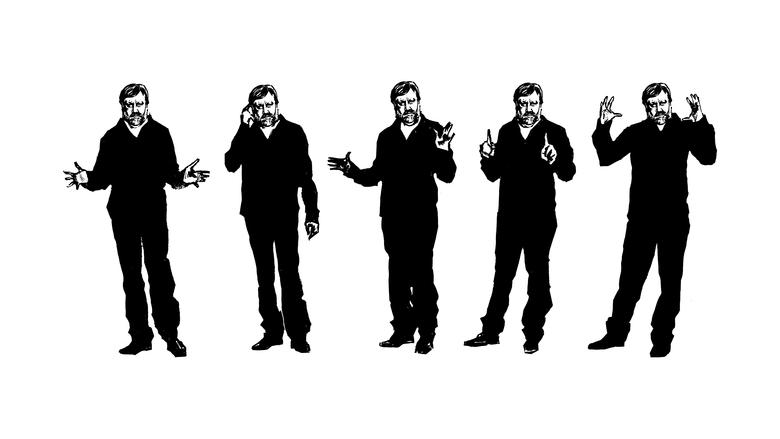
The Pervert's Guide to Cinema (2006)
A hilarious introduction, using as examples some of the best films ever made, to some of Slovenian philosopher and psychoanalyst Slavoj Žižek's most exciting ideas on personal subjectivity, fantasy and reality, desire and sexuality.
Watch Trailer
Cast


Similar titles
Reviews
To be honest, I really wasn't sure if I was meant to take this documentary seriously. It's host, Slavoj Zizek, is a Slovenian psychoanalyst who is simultaneously interesting and ridiculous. One third of the time his theories went straight over my head, another third of the time I found them (unintentionally?) hilarious, while the final third of the time I saw where he was coming from. Although I can't in all honesty say that I came away from The Pervert's Guide to Cinema with a feeling that I had a greater understanding of the subtext of the films discussed. I didn't really agree with a lot of what Zizek said, his (over)analysis was very entertaining though. The documentary as a result feels much more about Zizek himself than the films. However, it does have to be said that the selection of movies covered is really pretty good, so from that basis alone this is a film documentary worth seeing.It's not especially clear who this is aimed at mind you. The title is very misleading. It makes it sound like it should be a guide to sexploitation films or something. Well, of course it isn't. Zizek examines Freudian theories in cinema specifically in the case of films by Alfred Hitchcock and David Lynch, but also with extensive clips from many other movies ranging from The Wizard of Oz to The Matrix. Zizek is the only person in this feature, so it works like an extended - if rambling - essay. Director Sophie Fiennes makes things a little more visually interesting by having Zizek appear to be in the film set himself - we see him in the cellar in Psycho, the hotel room in Vertigo and in a speedboat in Bodega Bay in The Birds. It's a neat touch, and quite funny too. As are much of Zizek's throwaway comments such as his view that 'flowers should be forbidden to children' or when he states that Stalinism was all about totalitarianism, mass murder and musicals. Even if you don't agree with this guy, you have to admit he is never exactly boring.
I understood from the credits to the film that Slavoj Zizek is the sole writer. Having seen Zizek lecture in person, and interviewed him on one occasion, would appear to confirm that it is tightly scripted. This in my opinion was a mistake. Zizek is calling all the shots in the film, which exposes the director's very shaky and underdeveloped premise: just let Zizek talk. And by just letting him talk, trust in him that he will enlighten us, the audience, and that you, the director, will be able to capture that. Problem is that the director doesn't understand what he's talking about, which makes her incapable of editing him (hence the extraordinarily long running time! of over two hours!!). And since she cannot engage with his discourse all she contributes in the way of direction are a series of jokey mises en scenes where Zizek gets to live out his fantasies by appearing in his favourite films. What would have worked much better is if Zizek had had an interlocutor, someone to contradict him. Or if some of his fantasy screen idols, rather than remaining impassive and mute to his presence, had woken up. But the director can't do that because she doesn't have the confidence or knowledge of his philosophy, so instead she just lets him ramble, interminably, for over 2 HOURS, in the kind of free association mode that should only ever be heard in private from within the analyst's surgery. The film presents a one way conversation, a closed discourse, and we end up not really involved, as voyeurs. Maybe that's the point, the "pervert" of the title. But then I thought that voyeurs were supposed to get a thrill...
"Cinema is the ultimate pervert art. It doesn't give you what you desire; it tells you how to desire."So begins "The Pervert's Guide to Cinema," in which Slovenian philosopher and psychoanalyst Slavoj Zizek applies his Freudian/Lacanian brain-scalpel to world cinema. This film in three parts is the second feature documentary directed by Sophie Fiennes (yes, sister of Ralph and Joseph), and it is a notable accomplishment, clocking in at 2 1/2 hours of talk from one man and yet remaining humorous and engaging throughout. In essence, it is an extended film lecture, and one of the best you may ever get. Over the course of the film, Zizek guides us through a catalog of obsession and desire in film history. He touches on more than 40 films and, in particular, spends a great deal of time with Hitchcock, Lynch, Chaplin, Tarkovsky, the Marx Brothers, and Eisenstein. But he also takes a close look at "Persona," "The Conversation," "Three Colors: Blue," "Dogville," "Fight Club," and "The Exorcist." Thematically, Zizek's inquiry into cinema ranges from thoughts on the death drive to the "coordinates of desire," and from Gnosticism to "partial objects.""The Pervert's Guide" will be a slightly better experience if you've taken a few minutes to bone up on your basic Freudian terminology. However, even if you're not steeped in psychoanalytic theory, Zizek's dynamic and hilarious personality carries the film forward with such gusto that you aren't likely to balk at the specialized lingo. The film frequently cuts from movie clips to images of Zizek *inside* the movie he is talking about--that is, in the original locations and sets. The transitions in these sequences sustain such tension and humor that the trick never gets old. And Zizek himself is constantly making us laugh, either from bizarre little jokes or from his enthusiastic insistence on, for example, a bold Oedipal interpretation of "The Birds." And this go-ahead-and-laugh attitude, on the parts of both Fiennes and Zizek, is essential to the gonzo character of the film. It is the spoonful of sugar that helps us digest Zizek's weird medicine. After all, don't we all have a sense that, past a certain point, psychology theorists are just pulling our legs?
An old intellectual talks about what he considers art in movies. You get your Hitchcock, your Chaplin, your Bergman and some other stuff prior to the 80ies. To disguise that he has no clue what is going on in cinemas these days, he throws in The Matrix.But it's not only the same lame film-as-art speech all over again. This speech is reduced to outdated psychological platitudes: it-ego-super ego, anal phase, sexual insufficiency. It is garnished with the cheesy effect of having Zizte edited into the movies he is taking about. For someone who is supposed to know much about movies, his own is, cinematographicly speaking: yeiks.To put it in Zizek's own words - I saw 5\-\!7 on the screen, last night, or in the words of a great movie maker:Mr. (Zizek), what you've just said is one of the most insanely idiotic things I have ever heard. At no point in your rambling, incoherent response were you even close to anything that could be considered a rational thought. Everyone in this room is now dumber for having listened to it. I award you (two) points (only), and may God have mercy on your soul.


